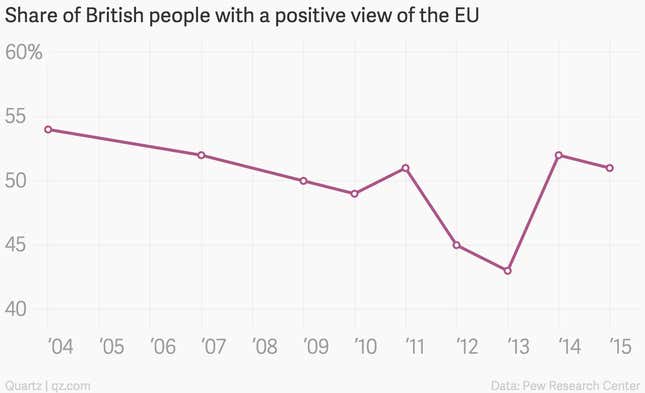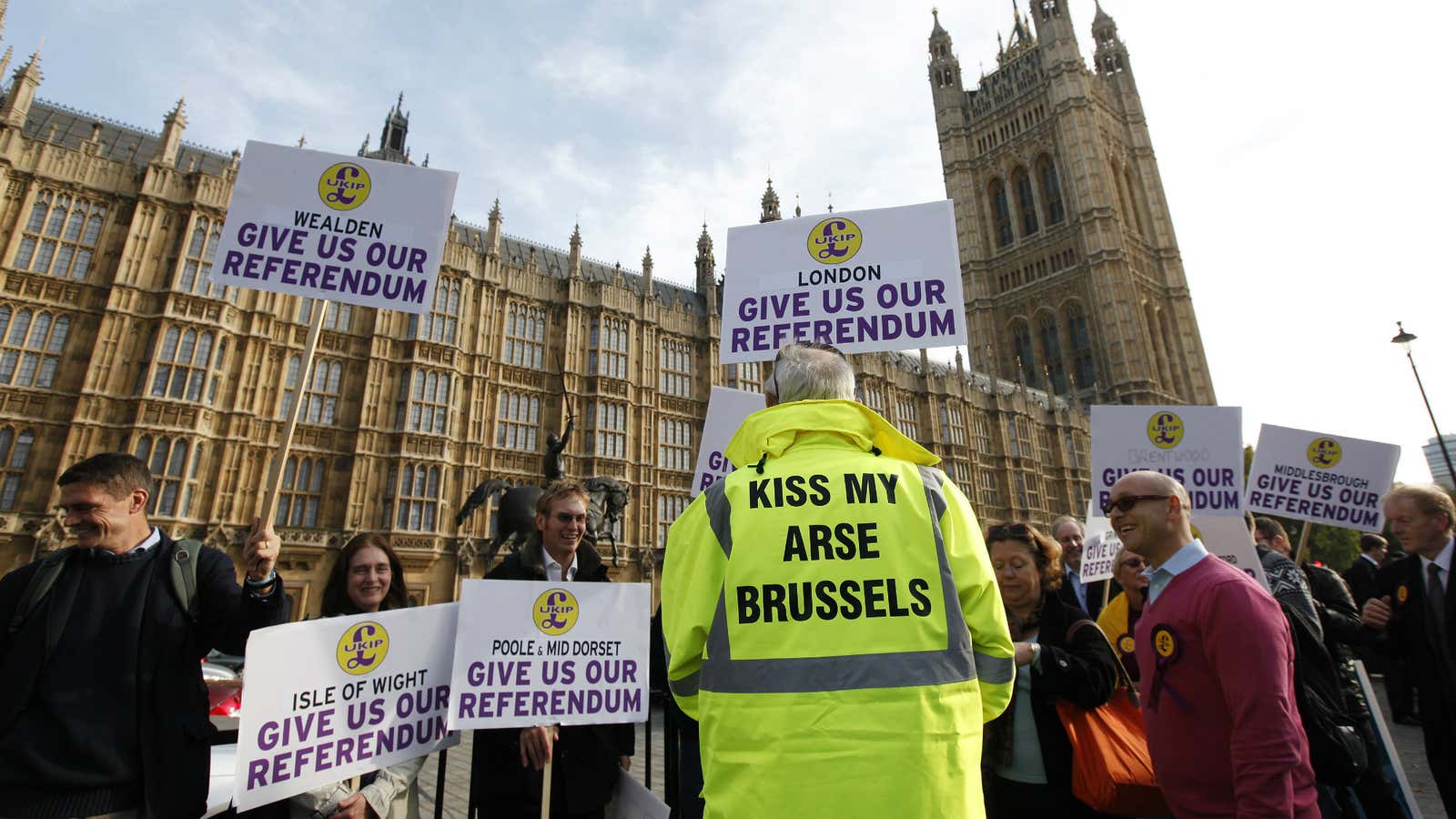Sometime before the end of 2017 the people of the UK will decide whether they want to stay in the European Union. The public referendum was promised by prime minister David Cameron in his pre-election pledges, in part because of what appeared to be rising discontent with the EU and a groundswell of public opinion in favor of a vote.
But research released today shows that the share of British people who have a positive view of the EU has jumped in recent years—a (slim) majority now believe that the bloc is a good thing.

The Pew Research Center carried out a survey (pdf) into attitudes towards the EU in the UK and five other big European countries. It didn’t ask people whether they wanted to leave the EU, but rather whether a person’s attitude to the bloc was favorable or not.
Brits were the least enthusiastic of the six countries, but 51% still viewed Europe favorably, compared with a low of 43% back in 2013. The most positive people were in Poland, where 72% of those surveyed thought well of the EU. Respondents in Germany, Spain, Italy, and France were also broadly in favor of the union.
Immigration is often cited—in the UK and elsewhere–as the main driver of anti-EU feeling, as the union allows the free movement of labor from poorer areas to richer ones, and also promotes a collective responsibility for asylum seekers and refugees. In Britain, the UK Independence Party has made inroads by tying its anti-immigration stance to the UK’s membership of the EU. Most Europeans (54%) think that the rise of these far-right, Euroskeptic parties is positive, because they raise important issues that are ignored by other major parties, Pew said.
Prime minister Cameron wants to call a referendum on EU membership only after he renegotiates the UK’s relationship with the bloc. As a result, the prospects for Britain’s future membership will rely on how much other European leaders concede to British demands for more autonomy.
In the meantime, the anti-EU camp will continue to argue that the UK is better off outside of the bloc, like Switzerland or Norway. For his part, Norway’s foreign minister said earlier this week that the UK should stay put—it “can have more influence inside the EU than outside,” he told the BBC.
